In Another Life...

















In Another Life...
Warsh_Tippy and Zelda - Whatever, Dad/Unknown/A Nest of Quiet: A Notebook-Anna Kamienska/The 1 - Taylor Swift/ghost, zero, suitcase, and the moon - richard siken/Last Kiss - Taylor Swift/Unknown/rebecca malakai/Warsh_Tippy and Zelda - Whatever, Dad/everything everywhere all at once /Scott Street- Phoebe Bridgers/the 1 - Taylor Swift/c. t. salazar/unknown/unknown/ The Goldfinch-Donna Tartt/Warsh_Tippy and Zelda - Whatever, Dad
More Posts from Bellsofysa and Others





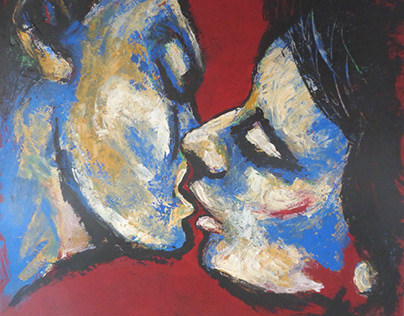
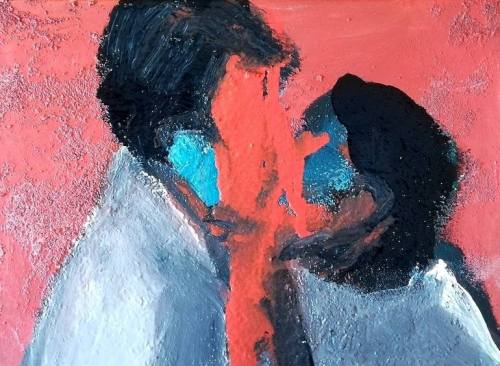


kiss me hard enough to invert me
Yves Olade, Henri de Toulouse-Lautrec, Nickie Zimov, Carmen Tyrrell, Stefano Dania, Edvard Munch, Angelica Alzona
“How wonderful it is to be silent with someone.”
— Kurt Tucholsky (via bnmxfld)

![ULTIMATE SHIPS CHALLENGE - Defining Moments [3/3]](https://64.media.tumblr.com/08fabf716107325bdc3a0ca0f8323992/1b31a25cec5af14f-27/s500x750/e83c5467392fb7837400326bd93e106f214b0972.gif)
![ULTIMATE SHIPS CHALLENGE - Defining Moments [3/3]](https://64.media.tumblr.com/d8ded21576a39fe0e78926ef08cf64e4/1b31a25cec5af14f-85/s500x750/1164a8f13399030c85c31a3cf47676080b85ef4e.gif)
![ULTIMATE SHIPS CHALLENGE - Defining Moments [3/3]](https://64.media.tumblr.com/1c954fb180214cab2a70f164e61899f7/1b31a25cec5af14f-6f/s500x750/e071333dcf0359ac593cab0886902711f3c57205.gif)
![ULTIMATE SHIPS CHALLENGE - Defining Moments [3/3]](https://64.media.tumblr.com/c47e7045ffb004694a73f3dd109707e8/1b31a25cec5af14f-af/s500x750/6df67cb27c8d717c3f33a47614c6e2ace02c251a.gif)
![ULTIMATE SHIPS CHALLENGE - Defining Moments [3/3]](https://64.media.tumblr.com/14c7cfe465d7df86e00f62df8b43a42d/1b31a25cec5af14f-a7/s500x750/7d27e77f55deb54356889afc6de137517f123b66.gif)
ULTIMATE SHIPS CHALLENGE - Defining Moments [3/3]

The Lumineers; Dead Sea
(source: @qvotext on instagram)



Portrait of a Lady on Fire (2019) dir. Céline Sciamma

















"I THOUGHT OF YOU." // CLOSE, BUT NOT CLOSE ENOUGH
Adrianne Lenker anything // Portrait de la jeune fille en feu (2019) dir. Céline Sciamma // Ingmar Bergman from a letter to Liv Ullmann // Sonya Vatomsky Salt Is For Curing // Isaac Marion Warm Bodies // Portrait de la jeune fille en feu (2019) dir. Céline Sciamma // Richard Siken Crush // Leah Horlick For Your Own Good // Portrait de la jeune fille en feu (2019) dir. Céline Sciamma // Roland Barthes A Lover's Discourse: Fragments // Bret Easton Ellis The Rules of Attraction // Thomas E. Yingling "My Way Home is Through You," Hart Crane and the Homosexual Text: New Thresholds, New Anatomies // Portrait de la jeune fille en feu (2019) dir. Céline Sciamma // Adrianne Lenker anything // Frank Bidart "Guilty of Dust," Half-light: Collected Poems 1965-2016 // Portrait de la jeune fille en feu (2019) dir. Céline Sciamma // Yrsa Daley-Ward Bone
In the past I've shared other people's musings about the different interpretations of the myth of Orpheus and Eurydice. Namely, why Orpheus looks back at Eurydice, even though he knows it means he'll lose her forever. So many people seem to think they've found the one true explanation of the myth. But to me, the beauty of myths is that they have many possible meanings.
So I thought I would share a list of every interpretation I know, from every serious adaptation of the story and every analysis I've ever heard or read, of why Orpheus looks back.
One interpretation – advocated by Monteverdi's opera, for example – is that the backward glance represents excessive passion and a fatal lack of self-control. Orpheus loves Eurydice to such excess that he tries to defy the laws of nature by bringing her back from the dead, yet that very same passion dooms his quest fo fail, because he can't resist the temptation to look back at her.
He can also be seen as succumbing to that classic "tragic flaw" of hubris, excessive pride. Because his music and his love conquer the Underworld, it might be that he makes the mistake of thinking he's entirely above divine law, and fatally allows himself to break the one rule that Hades and Persephone set for him.
Then there are the versions where his flaw is his lack of faith, because he looks back out of doubt that Eurydice is really there. I think there are three possible interpretations of this scenario, which can each work alone or else co-exist with each other. From what I've read about Hadestown, it sounds as if it combines all three.
In one interpretation, he doubts Hades and Persephone's promise. Will they really give Eurydice back to him, or is it all a cruel trick? In this case, the message seems to be a warning to trust in the gods; if you doubt their blessings, you might lose them.
Another perspective is that he doubts Eurydice. Does she love him enough to follow him? In this case, the warning is that romantic love can't survive unless the lovers trust each other. I'm thinking of Moulin Rouge!, which is ostensibly based on the Orpheus myth, and which uses Christian's jealousy as its equivalent of Orpheus's fatal doubt and explicitly states "Where there is no trust, there is no love."
The third variation is that he doubts himself. Could his music really have the power to sway the Underworld? The message in this version would be that self-doubt can sabotage all our best efforts.
But all of the above interpretations revolve around the concept that Orpheus looks back because of a tragic flaw, which wasn't necessarily the view of Virgil, the earliest known recorder of the myth. Virgil wrote that Orpheus's backward glance was "A pardonable offense, if the spirits knew how to pardon."
In some versions, when the upper world comes into Orpheus's view, he thinks his journey is over. In this moment, he's so ecstatic and so eager to finally see Eurydice that he unthinkingly turns around an instant too soon, either just before he reaches the threshold or when he's already crossed it but Eurydice is still a few steps behind him. In this scenario, it isn't a personal flaw that makes him look back, but just a moment of passion-fueled carelessness, and the fact that it costs him Eurydice shows the pitilessness of the Underworld.
In other versions, concern for Eurydice makes him look back. Sometimes he looks back because the upward path is steep and rocky, and Eurydice is still limping from her snakebite, so he knows she must be struggling, in some versions he even hears her stumble, and he finally can't resist turning around to help her. Or more cruelly, in other versions – for example, in Gluck's opera – Eurydice doesn't know that Orpheus is forbidden to look back at her, and Orpheus is also forbidden to tell her. So she's distraught that her husband seems to be coldly ignoring her and begs him to look at her until he can't bear her anguish anymore.
These versions highlight the harshness of the Underworld's law, and Orpheus's failure to comply with it seems natural and even inevitable. The message here seems to be that death is pitiless and irreversible: a demigod hero might come close to conquering it, but through little or no fault of his own, he's bound to fail in the end.
Another interpretation I've read is that Orpheus's backward glance represents the nature of grief. We can't help but look back on our memories of our dead loved ones, even though it means feeling the pain of loss all over again.
Then there's the interpretation that Orpheus chooses his memory of Eurydice, represented by the backward glance, rather than a future with a living Eurydice. "The poet's choice," as Portrait of a Lady on Fire puts it. In this reading, Orpheus looks back because he realizes he would rather preserve his memory of their youthful, blissful love, just as it was when she died, than face a future of growing older, the difficulties of married life, and the possibility that their love will fade. That's the slightly more sympathetic version. In the version that makes Orpheus more egotistical, he prefers the idealized memory to the real woman because the memory is entirely his possession, in a way that a living wife with her own will could never be, and will never distract him from his music, but can only inspire it.
Then there are the modern feminist interpretations, also alluded to in Portrait of a Lady on Fire but seen in several female-authored adaptations of the myth too, where Eurydice provokes Orpheus into looking back because she wants to stay in the Underworld. The viewpoint kinder to Orpheus is that Eurydice also wants to preserve their love just as it was, youthful, passionate, and blissful, rather than subject it to the ravages of time and the hardships of life. The variation less sympathetic to Orpheus is that Euyridice was at peace in death, in some versions she drank from the river Lethe and doesn't even remember Orpheus, his attempt to take her back is selfish, and she prefers to be her own free woman than be bound to him forever and literally only live for his sake.
With that interpretation in mind, I'm surprised I've never read yet another variation. I can imagine a version where, as Orpheus walks up the path toward the living world, he realizes he's being selfish: Eurydice was happy and at peace in the Elysian Fields, she doesn't even remember him because she drank from Lethe, and she's only following him now because Hades and Persephone have forced her to do so. So he finally looks back out of selfless love, to let her go. Maybe I should write this retelling myself.
Are any of these interpretations – or any others – the "true" or "definitive" reason why Orpheus looks back? I don't think so at all. The fact that they all exist and can all ring true says something valuable about the nature of mythology.
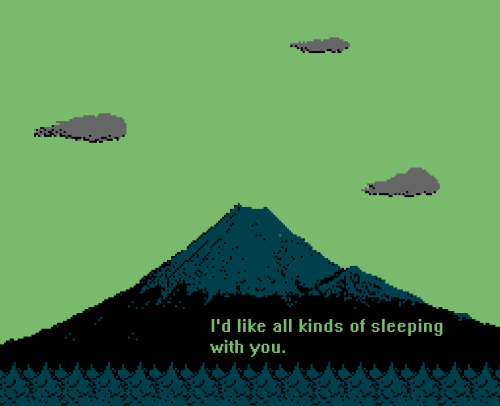

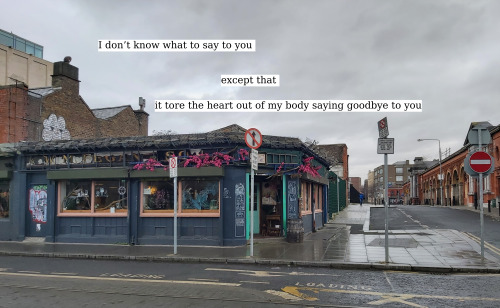





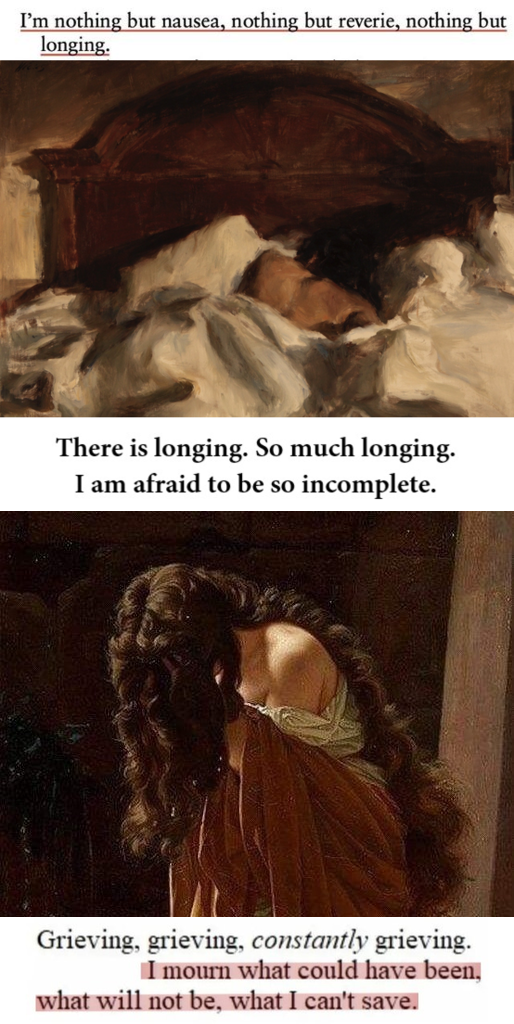








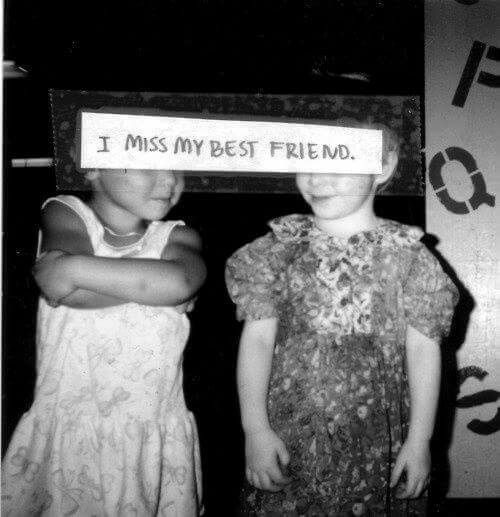













right person, wrong time (variations on heartbreak)
@leemartenspoetry on tumblr
vita sackville-west & fegan’s 1924 café in dublin
everything everywhere all at once (2022)
@heavensghost on tumblr
i had to get out by indigo de souza
‘calling a wolf a wolf' by kaveh akbar
river by joni mitchell
‘english song’ in a little larger than the entire universe: selected poems by fernando pessoa
slumber by ron hicks
fish in exile by vi khi nao
penitent magdalene by antonio ciseri
@ojibwa on tumblr
this is what the drugs are for by gracie abrams & the awakening by angelo morbelli
as good as it gets by fizz
lonely this christmas by mud & picture of the christmas tree at trinity college dublin, taken by me in december of 2022
this is what the drugs are for by gracie abrams & picture by andrew collins via globalnews.ca
@inanotherunivrs on tumblr & a polaroid of me taken by my ex-boyfriend
‘in a dream you saw a way to survive’ by clementine von radics & a picture of my ex-boyfriend's window, taken by me
bluets by maggie nelson & the poolbeg generating station, dublin
‘unrequited’ by sasha m george & inheritance by matthew w. cornell
[unknown]
@ faraway on instagram & lavender sprigs farm cut by linda jacobus
the museum of heartbreak by meg leder
[unknown]
‘seaside improvisation’ by richard siken
@ dracarysgang on twitter
@-love-letters-i-never-sent
@fromdarzaitoleeza on tumblr
explosions by ellie goulding
‘i had a dream about you’ by richard siken
the beatrice letters by lemony snicket
la la land (2016)
‘catalog of unabashed gratitude’ by ross gay
@stuckinapril on tumblr
@deathlywounded on tumblr
some are always hungry by jihyun yun
‘speaking practice’ by franny choi
a self-portrait in letters by anna sexton & a picture of my ex-boyfriend in a lake in Orfű, Hungary
@sunsbleeding on tumblr
‘there is no absolution for the fallen, only the dying’ by p.d
-
 loureedpiss liked this · 2 weeks ago
loureedpiss liked this · 2 weeks ago -
 verytheoristjellyfish liked this · 2 weeks ago
verytheoristjellyfish liked this · 2 weeks ago -
 freetheworms liked this · 2 weeks ago
freetheworms liked this · 2 weeks ago -
 angeleyes-things liked this · 2 weeks ago
angeleyes-things liked this · 2 weeks ago -
 catlizard liked this · 2 weeks ago
catlizard liked this · 2 weeks ago -
 withoutgrievance reblogged this · 2 weeks ago
withoutgrievance reblogged this · 2 weeks ago -
 butimnotasexyrussian reblogged this · 3 weeks ago
butimnotasexyrussian reblogged this · 3 weeks ago -
 vielu liked this · 3 weeks ago
vielu liked this · 3 weeks ago -
 ianthae liked this · 3 weeks ago
ianthae liked this · 3 weeks ago -
 letsgomiko liked this · 3 weeks ago
letsgomiko liked this · 3 weeks ago -
 girlonthemoon-cudisa liked this · 3 weeks ago
girlonthemoon-cudisa liked this · 3 weeks ago -
 inmyblood6 liked this · 3 weeks ago
inmyblood6 liked this · 3 weeks ago -
 coolest-kid-onthe-block reblogged this · 3 weeks ago
coolest-kid-onthe-block reblogged this · 3 weeks ago -
 coolest-kid-onthe-block liked this · 3 weeks ago
coolest-kid-onthe-block liked this · 3 weeks ago -
 ohshc-trash-14 liked this · 3 weeks ago
ohshc-trash-14 liked this · 3 weeks ago -
 fr0gsoupz liked this · 3 weeks ago
fr0gsoupz liked this · 3 weeks ago -
 asableedingheart liked this · 3 weeks ago
asableedingheart liked this · 3 weeks ago -
 mrmaliciousintent liked this · 3 weeks ago
mrmaliciousintent liked this · 3 weeks ago -
 stillrosewater liked this · 4 weeks ago
stillrosewater liked this · 4 weeks ago -
 sadncssfossilized reblogged this · 4 weeks ago
sadncssfossilized reblogged this · 4 weeks ago -
 webweavecollection reblogged this · 1 month ago
webweavecollection reblogged this · 1 month ago -
 thelonelypeachmonster liked this · 1 month ago
thelonelypeachmonster liked this · 1 month ago -
 giant-sandwitch56 liked this · 1 month ago
giant-sandwitch56 liked this · 1 month ago -
 rosegoldendaydream liked this · 1 month ago
rosegoldendaydream liked this · 1 month ago -
 nox-ut-lux reblogged this · 1 month ago
nox-ut-lux reblogged this · 1 month ago -
 neverlandwaitingforme liked this · 1 month ago
neverlandwaitingforme liked this · 1 month ago -
 birdemic2 liked this · 1 month ago
birdemic2 liked this · 1 month ago -
 rockygetsrolling liked this · 1 month ago
rockygetsrolling liked this · 1 month ago -
 lambentwithlove reblogged this · 1 month ago
lambentwithlove reblogged this · 1 month ago -
 xlate-night-feelingsx liked this · 1 month ago
xlate-night-feelingsx liked this · 1 month ago -
 yrbloodygf liked this · 1 month ago
yrbloodygf liked this · 1 month ago -
 tardis-auto-pilot liked this · 1 month ago
tardis-auto-pilot liked this · 1 month ago -
 punkisdead reblogged this · 1 month ago
punkisdead reblogged this · 1 month ago -
 thesleepybabesclub liked this · 1 month ago
thesleepybabesclub liked this · 1 month ago -
 dangerousdesigncarsshark liked this · 1 month ago
dangerousdesigncarsshark liked this · 1 month ago -
 wastelandmoss liked this · 1 month ago
wastelandmoss liked this · 1 month ago -
 mothmorgue liked this · 1 month ago
mothmorgue liked this · 1 month ago -
 theverylastdropofaninkpen liked this · 1 month ago
theverylastdropofaninkpen liked this · 1 month ago -
 ghost81194 liked this · 1 month ago
ghost81194 liked this · 1 month ago -
 whatforgivnesssoundslike liked this · 1 month ago
whatforgivnesssoundslike liked this · 1 month ago -
 earth2alyssa reblogged this · 1 month ago
earth2alyssa reblogged this · 1 month ago -
 butyouweregone reblogged this · 1 month ago
butyouweregone reblogged this · 1 month ago -
 butyouweregone liked this · 1 month ago
butyouweregone liked this · 1 month ago -
 tiredinkk liked this · 1 month ago
tiredinkk liked this · 1 month ago -
 aftersunave liked this · 1 month ago
aftersunave liked this · 1 month ago -
 criesnwhines reblogged this · 1 month ago
criesnwhines reblogged this · 1 month ago -
 criesnwhines liked this · 1 month ago
criesnwhines liked this · 1 month ago
